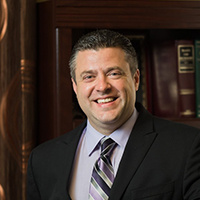 Price Misdemeanor Lawyers, Texas
Price Misdemeanor Lawyers, Texas
Sponsored Law Firm
-
 x
x

Click For More Info:
-
Law Office of Robert R. Jones III
2411 Emancipation Ave, Suite 202, Houston, TX 77004» view mapCriminal Defense Expert Representation for Reasonable Rates
If you need representation, call me 24/7.
800-883-8760
Not enough matches for Price Misdemeanor lawyer.
Below are all Price Criminal lawyers.
Sponsored Lawyers
1-10 of 46 matches
Personal Injury, Immigration, Criminal, Divorce & Family Law
Jeremy Coe is a fourth-generation East Texan. He graduated from Winnsboro High School in 1991, where he was selected as “Best All-Around Boy.” After being awarded a Presidential Scholarship, Jeremy attended Tyler Junior College, where he was elected President of Phi Theta Kappa, the national junior college honor society, and served as an Editor of the TJC Apache newspaper. Jeremy graduated magna cum laude from TJC in 1993 with an associate’s degree in journalism. Jeremy was also selected in 1993 as one of 20 “Academic All-Americans” and was featured in USA Today newspaper. Jeremy was also selected as a Presidential Scholar at the University of Texas at Tyler, where he worked as an Editor of the UT Tyler Patriot newspaper and won awards in regional Moot Court competitions. Jeremy graduated magna cum laude from UT Tyler in 1995 with a bachelor’s degree in Spanish, which he speaks, reads, and writes with fluency. Jeremy studied law at Texas Tech University in Lubbock, where he competed in Mock Trial and Moot Court competitions. He also took courses in Mexican law in Spanish at a law school in Guanajuato, Mexico. Jeremy graduated from Texas Tech School of Law in 1998. Upon graduation from law school, United States District Judge William M. Steger selected Jeremy in 1998 as a briefing attorney or “law clerk,” where he learned courtroom procedure, legal research, and observed some of the best trial attorneys in East Texas. Seeing great trial lawyers inspired Jeremy to seek a position with a plaintiff’s personal injury firm, and he went to work in 2000 for the Law Office of Stephen Woodfin in Kilgore, Texas. While working for Mr. Woodfin, Jeremy gained jury trial experience and learned personal injury and insurance law while helping plaintiffs recover damages from injuries due to automobile accidents and premises liability.
(more)


 Robert Jones San Antonio, TX
Robert Jones San Antonio, TX AboutLaw Office of Robert R. Jones III
AboutLaw Office of Robert R. Jones III Practice AreasSpecializations
Practice AreasSpecializations

